The project consortium includes leading research groups and companies who have been pioneering many of the recent advances in the field of atomic sensing and has been assembled to cover the entire knowledge chain from basic science to industrial deployment. It is the ultimate goal of macQsimal to develop scientific breakthroughs for atomic quantum metrology and sensing which will establish European leadership in the industry and drive excellence in quantum technologies in line with the strategic objectives of the FET Quantum Technologies Flagship.
2 Research & Technology Organisations
- Centre Suisse d’Electronique et de Microtechnique SA
- VTT Technology Center of Finland Oy
3 Industrial partners
- Robert Bosch GmbH
- Orolia Switzerland SA
- Megin OY
8 academic partners from 7 European countries
- The Institute of Photonic Sciences
- University of Copenhagen
- Centre National de la Recherche Scientifique
- Aalto University
- University of Basel
- University of Durham
- University of Stuttgart
- University of Neuchâtel
The macQsimal project is coordinated by Dr Jacques Haesler from CSEM, a research and technology organisation (RTO) based in Switzerland.

Centre Suisse d’Electronique et de Microtechnique SA (CSEM) is a private, non-profit Swiss research and technology organisation committed to both applied and industry-commissioned R&D. A bridge and catalyst for the transfer of technology and know-how between science and the economy, we continually adapt our research focus to meet industry’s needs. Today, we supply a broad range of markets—including automotive, medical, machine tools, and space exploration (www.csem.ch/Solutions/ByIndustry) — with an even broader range of technological solutions. CSEM’s areas of expertise include: medical and healthcare, safety and security, environment and energy, industrial automation, scientific instrumentation, etc. (www.csem.ch/Solutions/ByExpertise).

VTT Technology Center of Finland Oy (VTT) is one of Europe’s leading research institutions. We are owned by the Finnish state. As an impartial non-profit Research and Technology Organisation (RTO) and with the national mandate and mission to support economic competitiveness, societal development and innovation, VTT carries out research and innovation activities for the needs of industry and knowledge-based society. Through scientific and technological means, we turn large global challenges into sustainable growth for businesses and society. To contribute to EU goals for 2020 and beyond VTT works in synergy with the Finnish Ministry of Employment and the Economy, with regional innovation networks throughout Finland and with numerous European platforms and partnerships.

accelopment Schweiz AG (accelCH) is a Swiss SME that supports universities, research institutions and companies in the management of EU projects, communication activities as well as in the dissemination and exploitation of project results. accelCH’s multi-disciplinary and highly qualified staff combines 75 years of experience in proposal writing and project management of EU and national-funded projects. accelCH supports projects funded under different programmes and schemes, notably Horizon Europe, including Pathfinders, MSCA Doctoral Networks, Health, Energy and other Clusters, and Eurostars. accelCH is currently involved in more than 30 EU-funded projects. accelCH is ISO 9001 certified and internationally accredited by IQNET.

The Institute of Photonic Sciences (ICFO) is a research institution that aims to advance the very limits of knowledge using photonics, namely the science and technology of harnessing Light. Light, especially laser light, is one of the major enabling technologies currently available to humankind. ICFO currently hosts more than 300 researchers, including research group leaders, post-doctoral researchers, PhD students, research engineers, and staff, organized in 26 research groups working in 60 state-of-the-art research laboratories, equipped with the latest experimental facilities and supported by a range of cutting-edge facilities for nanofabrication, characterization, imaging and engineering. ICFOnians have been awarded 15 ICREA Professorships, 26 European Research Council grants and 7 Fundació Cellex Barcelona Nest Fellowships, and the institute consistently appears in top worldwide positions in international rankings measuring research excellence.
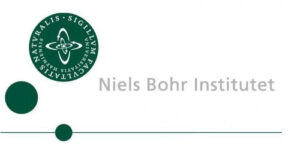
University of Copenhagen (UCPH) – Niels Bohr Institute (NBI) represents physics at the University of Copenhagen and has historically had a strong profile in quantum and atomic physics since the early days of quantum mechanics. At present the Institute hosts a wide range of activities in quantum physics including a strong quantum metrology and sensing activity. The European Physical Society has declared the Niels Bohr Institute as a Historic Site with great international importance for developments in physics and research.
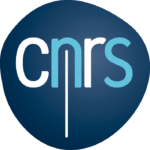
Centre national de la recherche scientifique (CNRS) – Laboratiore Kastler Brossel (LKB) is an internationally leading research laboratory in the domain of quantum physics. Its research covers a wide range of topics from many-body physics to quantum information, tests of fundamental interactions, and metrology. Experiments use ultracold and thermal atoms, trapped ions, solid-state emitters and nanomechanical oscillators, which are manipulated with lasers, high-finesse optical and microwave cavities, and other novel technologies such as atom chips.
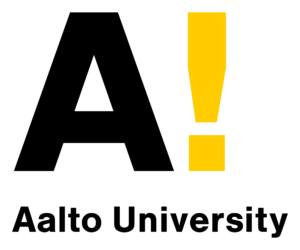
Aalto University (AALTO) is a new foundation-based university comprising science, technology, business, and arts. Aalto is the result of the merger of Helsinki University of Technology, Helsinki School of Economics and University of Art and Design. In its six schools (Science, Engineering, Electrical Engineering, Chemistry, Business & Arts, Design & Architecture), Aalto has over 20,000 students, 400 professors and 5,000 staff. Aalto hosts seven Centers of Excellence, 5 Academy Professors appointed by the Academy of Finland and 21 holders of European Research Council (ERC) grants. Aalto School of Science has included biomedical engineering and neuroscience and neurotechnology among its focus areas.

University of Basel (UNIBAS) has an international reputation for outstanding achievements in research and teaching. Founded in 1460, it is the oldest university in Switzerland and has a history of success going back over 550 years. In international rankings it is regularly placed among the 100 top universities in the world thanks to its research achievements. Research at the Department of Physics is focused on quantum science and technology and nanophysics. The Department is involved in the following major research centers in these fields, which have quantum sensing as one of their main research topics.
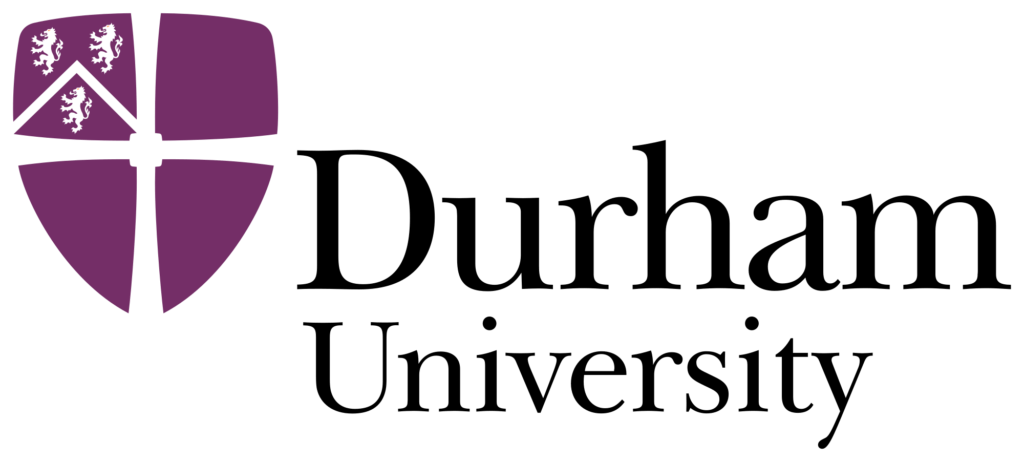
University of Durham (UDUR) has an excellent worldwide reputation in all areas of arts, humanities, natural and social sciences (ranked 82nd in the QS World University Rankings 2022). Its academic teaching and research programmes are delivered through 25 academic departments contained within three faculties: Arts and Humanities, Science, and Social Sciences and Health. The University also has 17 Colleges – Durham’s distinctive residential and educational communities. The University is engaged in a full range of higher educational activities, including high-quality teaching and learning at undergraduate and postgraduate levels, advanced research and scholarship, partnerships with businesses and other private and public sector bodies, and partnerships and initiatives with community and voluntary sector organisations.

University of Stuttgart is one of the leading technically oriented universities in Germany with global significance. It sees itself as a center of university-based, non-university, and industrial research. Furthermore, it takes a role as a guarantor of research-based teaching, focused on quality and holism. The Stuttgart Way means an interdisciplinary integration of engineering, natural sciences, humanities, and social sciences based on the fundamentals of cutting-edge research at a disciplinary level. The 5th Institute of Physics has since 18 years its focus on the spectroscopy of ultracold quantum gases but also on thermal vapours at room temperature.
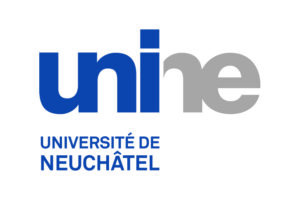
University of Neuchâtel (UNINE) is an internationally recognised institution, known for its reasonable size and favorable student-teacher ratio. With 4350 students, it provides high-quality teaching and is ranked among the 20 best small universities worldwide. Bachelor’s and Master’s degrees are in line with society’s expectations in a variety of innovative and cutting-edge fields. To the macQsimal Project, UniNE will participate through its Time and Frequency Laboratory (LTF) which constitutes one of the university’s nine key areas of research and innovation. LTF was founded in 2007 and profits from a strong heritage from former Observatoire Cantonal de Neuchatel in the fields of atomic clocks, and precision time and frequency metrology. The LTF’s mission is to explore and push the frontiers in time and frequency research, optical metrology, and ultrafast science and technology.
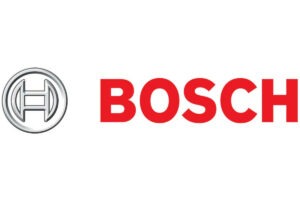
Robert Bosch GmbH (BOSCH). The Bosch Group is a leading global supplier of technology and services. In 2017 310,000 associates generated sales of 77.6 billion euros. Its operations are divided into four business sectors: Mobility Solutions, Industrial Technology, Consumer Goods, and Energy and Building Technology. The Bosch Group comprises Robert Bosch GmbH and its subsidiaries and regional companies in some 50 countries. In Corporate Research, Bosch’s central research organization our highly specialized associates all over the world work on technological breakthroughs in fields such as software development, robotics, or engine management. In this way, new ideas are constantly taking shape that makes existing products even more efficient, more comfortable, safer, and more environment-friendly, while also opening up entirely new lines of business. The involved CR department CR/ARY is dedicated to the research and development of microsystem technologies. We aim to use our technologies and methodology to strengthen RB´s position as the technological leader in MEMS and quantum sensors.

MEGIN OY (MEGIN) is the global leader for Magnetoencephalography (MEG) technology, a non-invasive, functional brain mapping solution for the diagnostic workup, treatment strategy and intervention of neurological conditions. Through innovation and passionate exploration of the endless possibilities with MEG, specialists from close to one hundred sites from around the world have used our MEG technology to study pathological and eloquent areas of the brain in patients diagnosed with neurological disorders.

Orolia Switzerland SA (SPT) is the world leader in Resilient Positioning, Navigation and Timing (R-PNT) solutions that improve the reliability, performance and safety of critical, remote or high-risk operations, even in GNSS-denied environments. Orolia provides virtually fail-safe GNSS and PNT solutions for military and commercial applications worldwide. The company is a worldwide provider of space-qualified atomic clocks, high-performance synchronization modules, high-end crystal, rubidium, maser, integrated GPS/GNSS clocks, as well as related testing instrument technologies for Ground & space applications.
